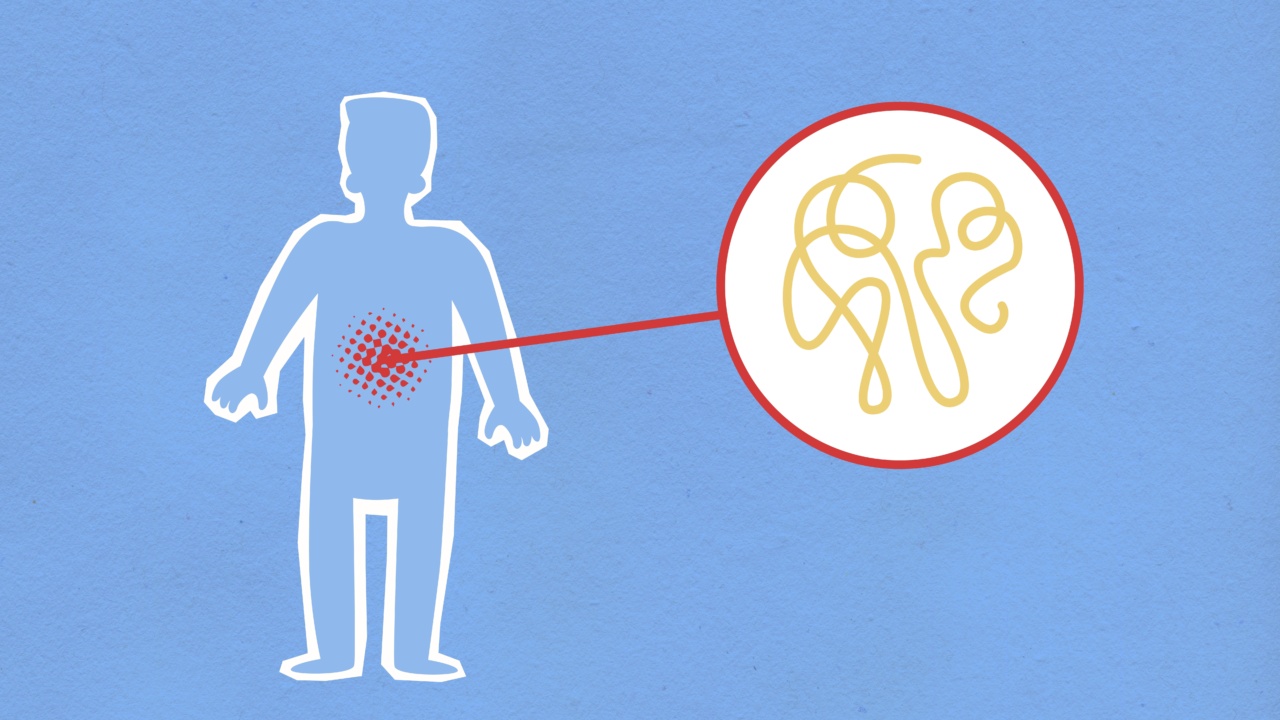Stomach pain is a common ailment that many people experience at some point in their lives.
It can range from mild discomfort to severe agony and can be caused by a variety of factors, including digestion issues, food allergies, and underlying medical conditions. While it may be tempting to simply ignore or suppress the pain, it is important to listen to your body’s signals and understand what they might be trying to tell you.
By paying attention to the location, duration, and intensity of the pain, as well as any accompanying symptoms, you can better identify the cause and seek appropriate treatment.
Location of the pain
One of the first steps in reading your body’s signals for stomach pain is to determine the location of the pain. The location can provide valuable clues about its potential cause.
For instance, if the pain is concentrated in the lower abdomen, it could be a sign of issues with the intestines or reproductive organs. On the other hand, pain in the upper abdomen may indicate problems with the stomach, liver, or gallbladder. By pinpointing the exact location, you can narrow down the possible causes and determine whether further medical attention is needed.
Duration and intensity of the pain
The duration and intensity of stomach pain can also offer insights into its underlying cause. Acute pain that comes on suddenly and lasts for a short period of time may be caused by indigestion, food poisoning, or gas.
This type of pain often subsides on its own or with minimal treatment. However, if the pain is chronic and persists for weeks or months, it could be a sign of a more serious condition such as gastritis, ulcers, or irritable bowel syndrome (IBS).
Similarly, severe and unrelenting pain may indicate a medical emergency such as appendicitis or gallstones. It is crucial to monitor the duration and intensity of your stomach pain and seek medical advice accordingly.
Accompanying symptoms
In addition to the location, duration, and intensity of the pain, it is important to pay attention to any accompanying symptoms that may provide further clues about the underlying cause.
Nausea, vomiting, diarrhea, constipation, bloating, and excessive gas are all common symptoms that can occur alongside stomach pain. For example, if you experience stomach pain accompanied by bloating and changes in bowel movements, it could be a sign of a digestive disorder such as Crohn’s disease or celiac disease.
By recognizing and communicating these accompanying symptoms to a healthcare professional, you can assist in the diagnostic process and receive appropriate treatment.
Common causes of stomach pain
There are numerous potential causes of stomach pain, and it can be helpful to familiarize yourself with some of the common culprits.
Indigestion, also known as dyspepsia, is a broad term used to describe discomfort or pain in the upper abdomen often accompanied by bloating, belching, and nausea. It can be caused by overeating, eating too quickly, or consuming spicy or fatty foods.
Another common cause of stomach pain is gastroesophageal reflux disease (GERD), which occurs when stomach acid flows back into the esophagus, causing a burning sensation in the chest or throat.
Food allergies or intolerances can also lead to stomach pain. Some individuals may be allergic to certain foods such as peanuts, shellfish, or dairy, which can trigger an immune response and result in abdominal pain, hives, or difficulty breathing.
Additionally, lactose intolerance, which affects the body’s ability to digest lactose found in dairy products, can cause stomach pain, bloating, gas, and diarrhea.
Inflammatory bowel diseases (IBD) such as Crohn’s disease and ulcerative colitis are chronic conditions characterized by inflammation in the digestive tract, leading to symptoms like abdominal pain, diarrhea, and rectal bleeding.
These conditions can cause substantial discomfort and may require long-term management.
Stomach ulcers are another potential cause of stomach pain.
These open sores that develop in the lining of the stomach can be caused by a bacterial infection known as Helicobacter pylori or by prolonged use of nonsteroidal anti-inflammatory drugs (NSAIDs). The pain associated with stomach ulcers is often described as a burning or gnawing sensation that worsens on an empty stomach or at night.
Less common but potentially serious causes of stomach pain include appendicitis, gallstones, kidney stones, and pancreatitis.
These conditions typically require immediate medical attention and may be accompanied by severe pain, fever, and other symptoms.
When to seek medical attention
While some instances of stomach pain can be managed or resolved at home with rest, hydration, and over-the-counter remedies, there are situations where seeking medical attention is crucial.
If you experience any of the following symptoms alongside stomach pain, it is important to seek immediate medical care:.
– Persistent, severe, or worsening pain.
– Vomiting blood or passing bloody stools.
– Difficulty breathing or chest pain.
– Inability to eat or drink.
– Swelling or tender abdomen.
– Yellowing of the skin or eyes (jaundice).
– High fever.
In these cases, prompt medical evaluation is necessary to identify the cause of the pain and initiate appropriate treatment.
Managing and treating stomach pain
Depending on the cause of the stomach pain, various management and treatment options are available.
For mild cases of indigestion or gas-related stomach pain, lifestyle changes such as eating smaller meals, avoiding trigger foods, and practicing stress reduction techniques may provide relief. Over-the-counter antacids or acid reducers can also be used to alleviate symptoms of acid reflux or indigestion.
However, it is important to carefully read and follow the instructions, as some medications can have side effects or interact with other medications.
If the stomach pain is caused by a bacterial infection, antibiotics may be prescribed. For chronic conditions like IBD, medications such as anti-inflammatory drugs or immunosuppressants may be used to manage symptoms and prevent flare-ups.
In cases where stomach ulcers are present, a combination of antibiotics, acid reducers, and lifestyle modifications is typically recommended for treatment.
It is worth noting that self-diagnosis and self-medication are not advisable when it comes to stomach pain.
A proper diagnosis by a healthcare professional is essential to determine the cause of the pain and recommend the most appropriate treatment plan. A healthcare provider can perform physical examinations, order diagnostic tests, and review your medical history to make an accurate diagnosis and provide targeted treatment.
Preventing stomach pain
While some causes of stomach pain may be out of your control, there are steps you can take to reduce the risk of developing this discomfort. Here are some preventive measures:.
1. Maintain a healthy diet: Consuming a balanced diet rich in fruits, vegetables, whole grains, and lean proteins can promote proper digestion and minimize the risk of stomach pain.
2. Stay hydrated: Drinking an adequate amount of water throughout the day can help prevent constipation and promote healthy bowel movements.
3. Manage stress: Chronic stress can contribute to a variety of health issues, including stomach pain. Engaging in stress-reducing activities such as exercise, meditation, or hobbies can help minimize stress levels.
4. Practice proper food safety: Avoiding undercooked or contaminated foods can prevent foodborne illnesses that may cause stomach pain and other symptoms.
5. Limit alcohol and caffeine consumption: Excessive alcohol and caffeine intake can irritate the stomach lining and lead to inflammation and discomfort. Moderation is key.
6. Take medications as prescribed: If you are using medications known to cause stomach irritation or ulcers, make sure to follow the recommended dosage and combine them with food or antacids if necessary.
7. Avoid trigger foods: If you notice that certain foods consistently trigger stomach pain or discomfort, consider avoiding or minimizing their consumption.
Conclusion
Stomach pain is a common complaint that can originate from various causes.
By paying attention to the location, duration, intensity, and accompanying symptoms of the pain, as well as properly communicating these details to a healthcare professional, you can increase the likelihood of an accurate diagnosis and appropriate treatment. Whether the pain is due to indigestion, food allergies, or a more serious underlying condition, seeking medical attention when necessary and taking preventive measures can help alleviate discomfort and maintain overall digestive health.



























